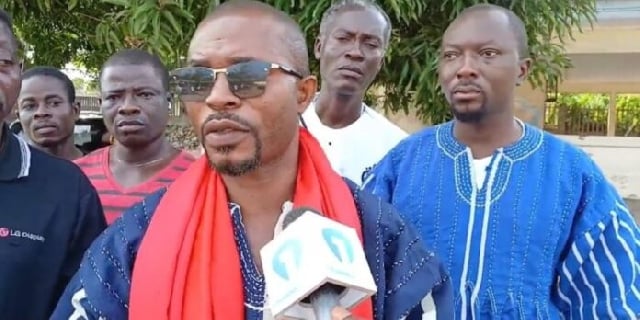The Mortuary Workers Association of Ghana (MOWAG) has decided to postpone a planned strike that was set to begin on October 10. This decision follows the expiration of a two-week ultimatum issued to the government on October 9, in which MOWAG demanded urgent improvements regarding their working conditions. According to Richard Kofi Jordan, the General Secretary of MOWAG, the strike was primarily aimed at advocating for vital changes, including adequate provision of Personal Protective Equipment (PPE), the settlement of outstanding salary arrears, and financial approval for the hiring of an additional 500 mortuary workers.
MOWAG’s leadership expressed disappointment with the government’s responses to their concerns, suggesting a lack of genuine commitment to remedying their issues. Jordan emphasized the association’s frustration with the slow pace of action, revealing that while the government has initiated data collection to determine eligibility for specific benefits among workers, he perceives this as a mere ploy to delay genuine resolutions. The sentiment within MOWAG is that the government’s approach to their demands has not been sincere or proactive, which has only fueled their determination to push harder for improvements within their working conditions.
Furthermore, Jordan conveyed that, although they have postponed the strike, MOWAG’s leadership is not conceding defeat. He hinted at the possibility of organizing another strike later in the month, with the intention of making it more impactful than the previous one. This strategic move is aimed at ensuring that the government comprehends the importance of the mortuary workers and the urgency of their demands. Jordan stated that the upcoming protest would be designed to exhibit their critical role in the sector, reinforcing the need for the government to recognize and address their ongoing challenges.
MOWAG’s concerns reflect broader issues within the healthcare ecosystem, wherein workers often face dire challenges without adequate support and resources. The demand for improved conditions, comprehensive safety gear, and fair compensation are not merely requests but essential needs that resonate with the rights of workers across various sectors, particularly those dealing with sensitive environments such as mortuaries. The ongoing struggles highlight significant gaps in how essential service workers are treated, particularly during challenging times such as the aftermath of health crises.
Responses from the government remain crucial moving forward, as MOWAG’s renewed call for action signifies a critical moment for dialogue between labor groups and health authorities. If the government can provide clear and actionable responses to MOWAG’s demands, it may alleviate the impending unrest and foster a cooperative atmosphere that benefits both the workers and the broader community they serve. On the other hand, if the government continues to neglect these pressing issues, the likelihood of further strikes increases, potentially disrupting essential services that are already under strain.
In summary, the postponement of MOWAG’s strike reflects a temporary tactical decision while reinforcing their resolve to advocate for better working conditions for mortuary workers in Ghana. The association’s calls for improved PPE, salary payments, and workforce expansion highlight significant industry challenges that require urgent government attention. As MOWAG prepares for potential future action, the outcomes of this situation could greatly influence labor relations and the commitment to safeguarding the welfare of essential service workers.














